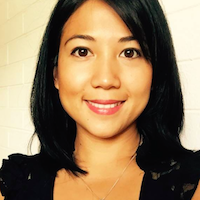In my third year of graduate school, I wanted to take on the world! I had built an impressive collection of hats—I had my student hat, my small business owner hat, my girlfriend hat, my board member hat, my mental health advocate hat, just to name a few.
After about six months of switching gears (umm, hats), I was burned out which wasn’t a surprise, really. My strong start of being productive, excited and passionate petered off to being irritable, isolated, resentful and getting marginal results at best.
Following my burnout, I had to take a few months off to restore myself and get back to where I was.
This doesn’t really work when it comes to productivity, because it often means having to take a step back and losing momentum we’ve gained. Looking back, I realized where I had gone oh so wrong.
While the burnout was uncomfortable, I was grateful for the experience and contrast it gave me. Even though I was seemingly saying yes to things that were inspiring and aligned with my goals, the timing was equally important. What I learned was that I had to simplify and stick to what was essential and important to do right now. I felt empowered because I had a choice and responsibility to use it toward the projects that were most important, urgent and in alignment with the present.
In addition to simplifying and exercising my choice, I also gained valuable knowledge and experience about how to create more focus and freedom in life:
1. Take a pause before you respond to an opportunity.
When someone offers you something, especially when it’s exciting, take a pause. There’s never a reason for you to say yes right then and there. Check in with yourself: Is this in alignment with my goals? Does this inspire me? Is this something that I need to be doing right now? What kind of commitment will this mean for me? What will I sacrifice if I take on this commitment? You’ll save yourself a lot of heartache and resentment in the future, if you are able to take a pause and self-reflect.
2. Your best is good enough.
One of the biggest wastes of time and energy was trying to meet my own imaginary standards of perfection. I did this constantly, with everything, whether it was important or not. My standards were often arbitrary or inconsistent with what was being asked of me. I would spend hours and hours on studying everything, not focusing on what was essential. My criteria was only to satisfy the perfectionism anxiety of making sure I knew everything for the test. I had great grades, but everything got muscled through. The downside to this is that we are not effective in producing the results that matter, and we won’t engage in projects that we can’t give our 150% on.
Some questions to ask yourself before starting a task: what kind of result is important and what kind of result I would be happy with? What limits can I set for this? How much time can I spend on this?
3. Ask for help.
We spend a lot of time in our heads spinning our wheels on problems. We analyze the scenario, look for a solution without changing our approach, and then get so frustrated we give up or lose our perspective. Sometimes asking someone with fresh eyes can reset our direction and help us refocus on what’s important.
It’s okay to ask for help, you’ll allow someone to contribute to your life and make more room for the more important stuff.
4. Undo your commitments.
For a self-proclaimed commitment phobe, I was pretty committed to things. I was afraid to take on more commitments, even if that meant they would help me be more productive, more inspired on projects that were more in alignment with myself, without looking at what I could undo my commitment from.
Spending a few moments each month to take a step back and look at what you’ve committed to, and what you can release your commitment from can help bring some more sanity in your life. You don’t have to disappear right away, create an exit strategy, and give whomever is involved in the commitment some notice ahead of time to find a replacement. Also, this doesn’t mean that new opening in your life gets to be re-filled again!
5. Don’t be afraid to say “no.”
For someone who has been a chronic “yes” person, suddenly saying no to things was a difficult transition for those around me to understand. Some took it personal, but in the long run, people understood that I was creating healthy boundaries where there was none before. Others began to respect my time, my energy and also were influenced to incorporate their own version of boundaries too. The more that you respect your time and energy, the more people will respect yours, too.
Beginning to put into practice good boundaries can empower us to create a healthier, more sustainable and productive lifestyle, as well as more time for the things that really matter.
~
Relephant:
10 Ways to Take Care of Ourselves when we’re Suffering from Burn Out.
The Eight Basic Salves for Burn-Out.
~
Author: Vanessa Ruiz
Editor: Katarina Tavčar
Photo: Ali/Flickr











Read 0 comments and reply